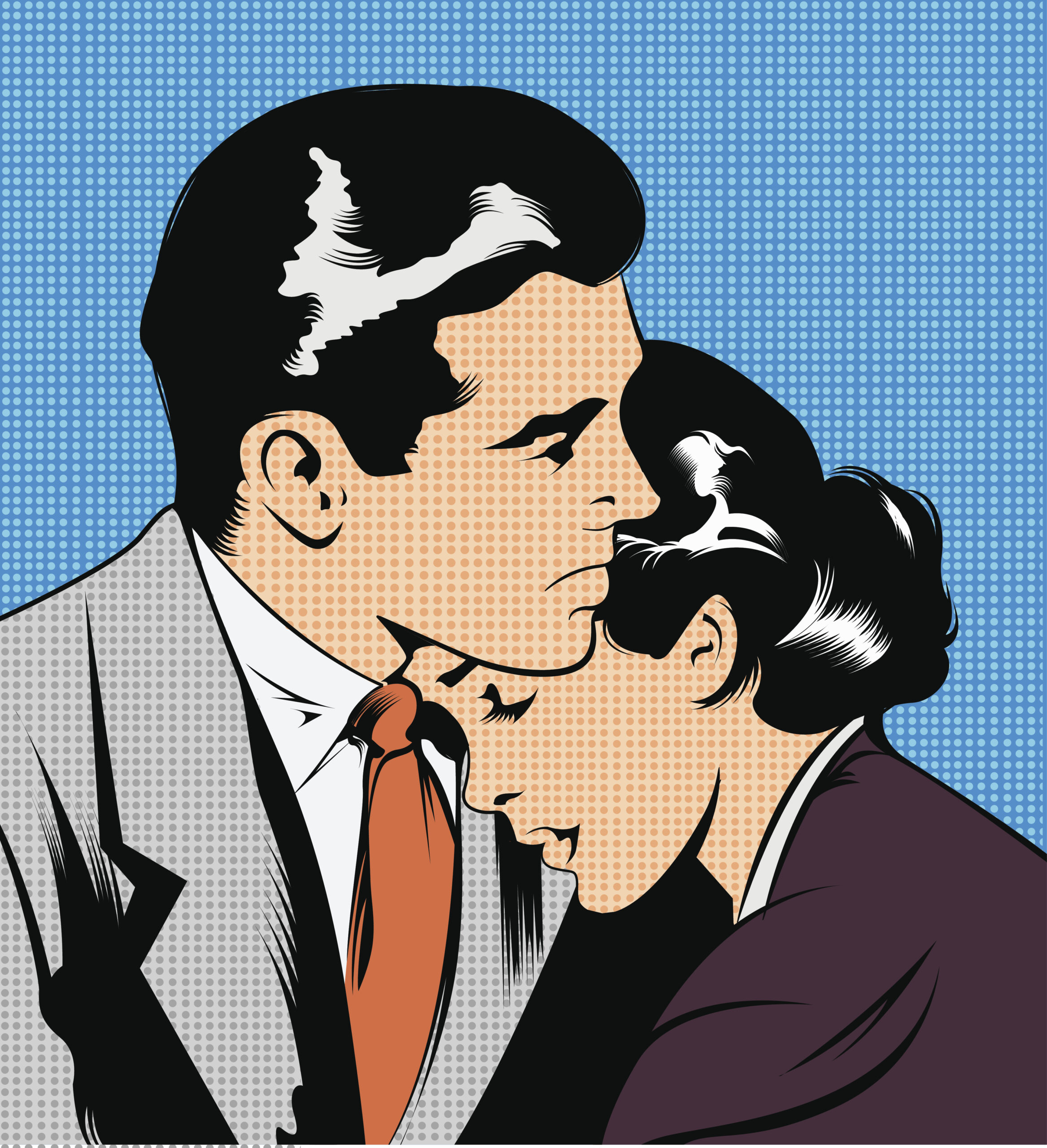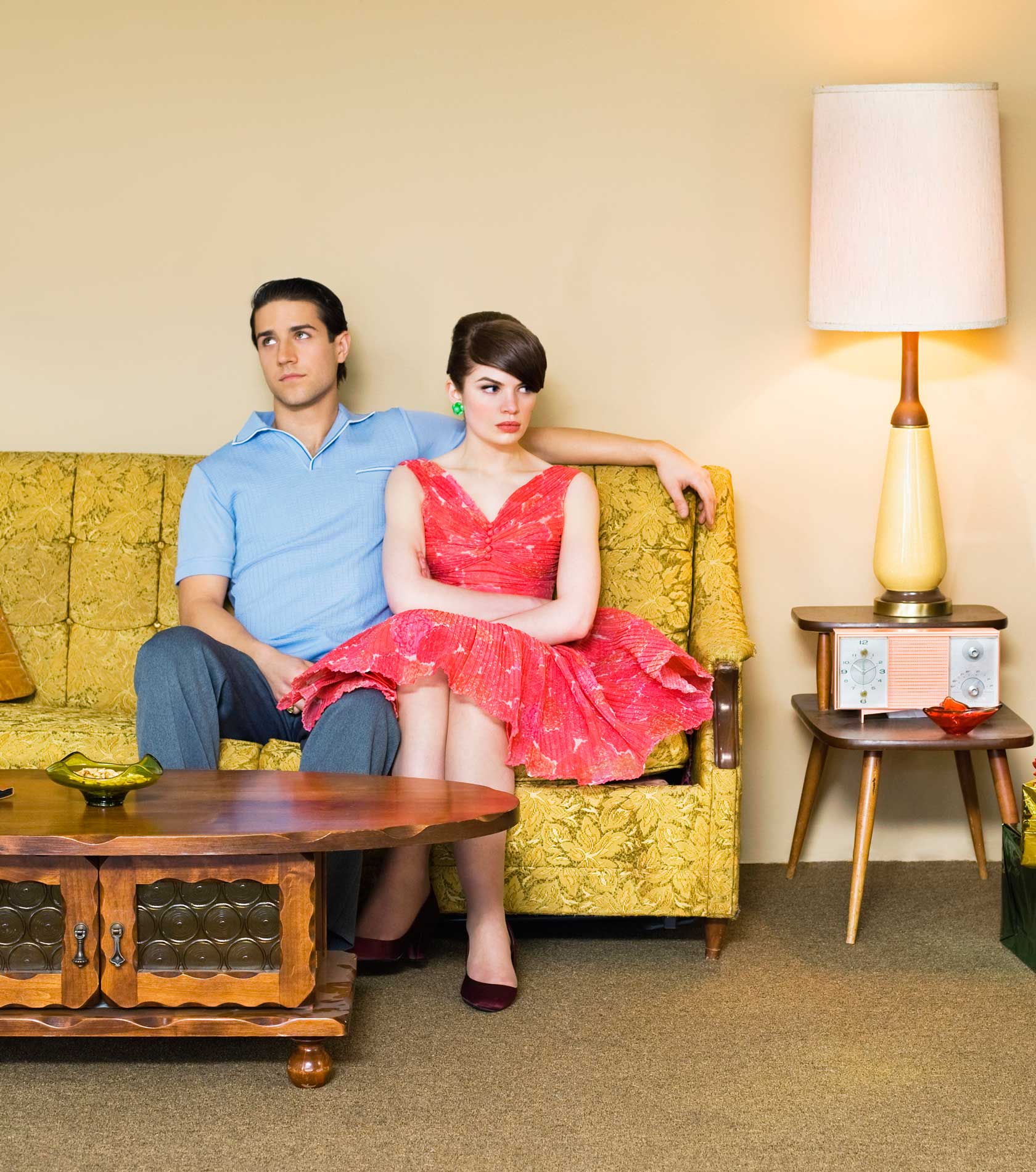Feeling jealous of your sibling or friend is one thing, but what about your boyfriend? Marianna Manson writes.
My boyfriend’s success has landed him his dream career, touring the world doing the one thing he loves more than anything in the world (including me). My lack of it has meant I’ve spent the last 6 months unemployed (sorry – ‘freelancing’), spending the vast majority of my time home alone feeling sorry for myself and only deigning to put on pants for ‘out’ out.
Needless to say, it’s put quite the strain on our relationship. As of right now, we’re caught up in a cycle of desperately wanting to make it work and giving in to the same vicious arguments. The long distance element was always going to be difficult, but progressively, I’ve noticed something else rear its ugly head – it wasn’t long before I identified that something as jealousy. And not in the traditional way we might expect jealousy to appear in your average insecurity-riddled courtship either.
Career envy in our friendships throws up obstacles at every turn when we’re struggling to make progress; to watch my boyfriend speed ahead in his (totally obscure and really weird) profession and leave me behind has meant I’ve grappled with feelings I’ve struggled to admit or articulate: that despite my love for him or his support in the past, his success is destroying me, which in turn, is destroying our relationship.
We’re conditioned to believe that love is about finding happiness in others’ happiness. That we should be selfless and endlessly supportive, and take pride in their success. ‘That’s so cool!’ my friends say, when I tell them what he’s doing. And yeah, I guess it is cool. But it doesn’t make the intense misery that I’m experiencing, from being away from him but also because of my own perceived failures, seem any less difficult.
‘The problem is, this issue doesn’t come up in couple therapy very much because people feel ashamed for feeling what they believe are ‘unreasonable’ feelings,” says Shirlee Kay, a relationship expert from London-based therapy service Coupleworks. ‘It’s important to normalise feelings of jealousy and envy, because everyone feels them at one time or another. The secret is to know them and express them in a way your partner can hear and digest. This requires one to become familiar and connected to how they feel so it becomes clear.’
When he took the job, I knew that long distance wasn’t something I could prepare for and at that stage we made the rational decision to break up. We love each other, but life had got in the way and we both chose to put ourselves and our careers ahead of what had been a great relationship. But when I found myself still struggling to make any progress a few months after he left I crumbled, reaching out to him in a string of desperate emails because (as is custom among spurned lovers) I had blocked him across all social media.
By the New Year, we were caught up in a destructive cycle, where I’m constantly disappointed that, consumed by this new life as he is, he either can’t or doesn’t want to give me the support I need from him. We’ve broken up over the phone so many times it doesn’t even really mean anything now.
By his own admission, he’s the happiest and most fulfilled that he’s ever been. That I’ve been at my lowest, mourning my relationship and on the verge of giving up on my career, only serves to make his life more difficult. He doesn’t want the hassle.
Maybe if we had been able to establish a mutually supportive set-up, it would be easier. Trying again after the initial break up was our way of staying committed, but the distance and our conflicting schedules make it practically impossible – coupled with the fact that I’m finding it excruciating to hear the details of his shiny new life, career envy has generated huge problems in our relationship, even more intense than the distance itself.
Does that make me a bad person, or a bad girlfriend? ‘The need to be patient and compassionate with yourself is key and getting into the ‘should or shouldn’t’ (I shouldn’t feel this way, or, I should feel this way) doesn’t allow us to process the feeling fully,’ says Shirlee. ‘We need to know and accept that it is an aspect of our character, but not all of us. In other words, sometimes we are unable to support and be happy for others and other times we can; both exist in us.’
When La La Land came out in cinemas, I went to see it with my flatmate, a while after my boyfriend left. It has been praised as being an honest representation of love, where two people allow each other the space to develop and grow into their aspirations. The ending is sad, obviously, but it’s universally acknowledged that the two of them ‘did the right thing.’ Leaving the cinema, the guilt that I’ve made what should be an incredible time for him difficult, by being needy and desperate, hit close to home. But this was the man who’d loved me for years. Who, up until he’d been plucked from obscurity and dragged to other side of the world with literally a few weeks notice, had been my greatest support and inspiration. Is it really so unnatural to feel abandoned, or to resent his happiness? My friends often tell me that ‘yes’, it is. But it doesn’t feel that simple to me.
In La La Land, Ryan Gosling’s character goes off to enjoy fame and fortune whilst his girlfriend continues to struggle through the cut-throat terrain they once navigated together. And after the initial inevitable phenomenal praise, came the more provocative think pieces. Maybe these two had given up on love, putting their selfishness and their egos above each other and turning their backs on the most important thing of all – love. It all sounds a bit gross and idealistic, and Hollywood portrayals of Hollywood are of course wildly satirical. But it came at a poignant time for me. I don’t want to give up on love and for a long time I’ve clung desperately to the promises he made me, that are slowly but surely getting lost in the shadow of his swelling success. His accomplishments fuel my self-doubt, and he doesn’t have the patience to alleviate that.
It’s been six months now, and within my own life I’ve managed to establish a more solid foothold and get on top of a career and the difficult emotions that had been wearing me down. We still haven’t really come to any solid conclusions and the stakes are still really high, but I feel hopeful that having my own stuff to focus on will take some of the pressure off relying on him for stability. I’m learning (as I’ve often had to do in the past) how to put blinders on, and concentrate on the path ahead of me.
Shirlee agrees: ‘It’s a misconception that our partners are responsible for our lives and our happiness. They can support us in our struggle, but that’s it.’ And since we couldn’t, ultimately, support each other, maybe this is the best way.
It might not be the Hollywood ending, but then, neither was La La Land.
This article originally appeared on The Debrief.

-scaled.jpg)


